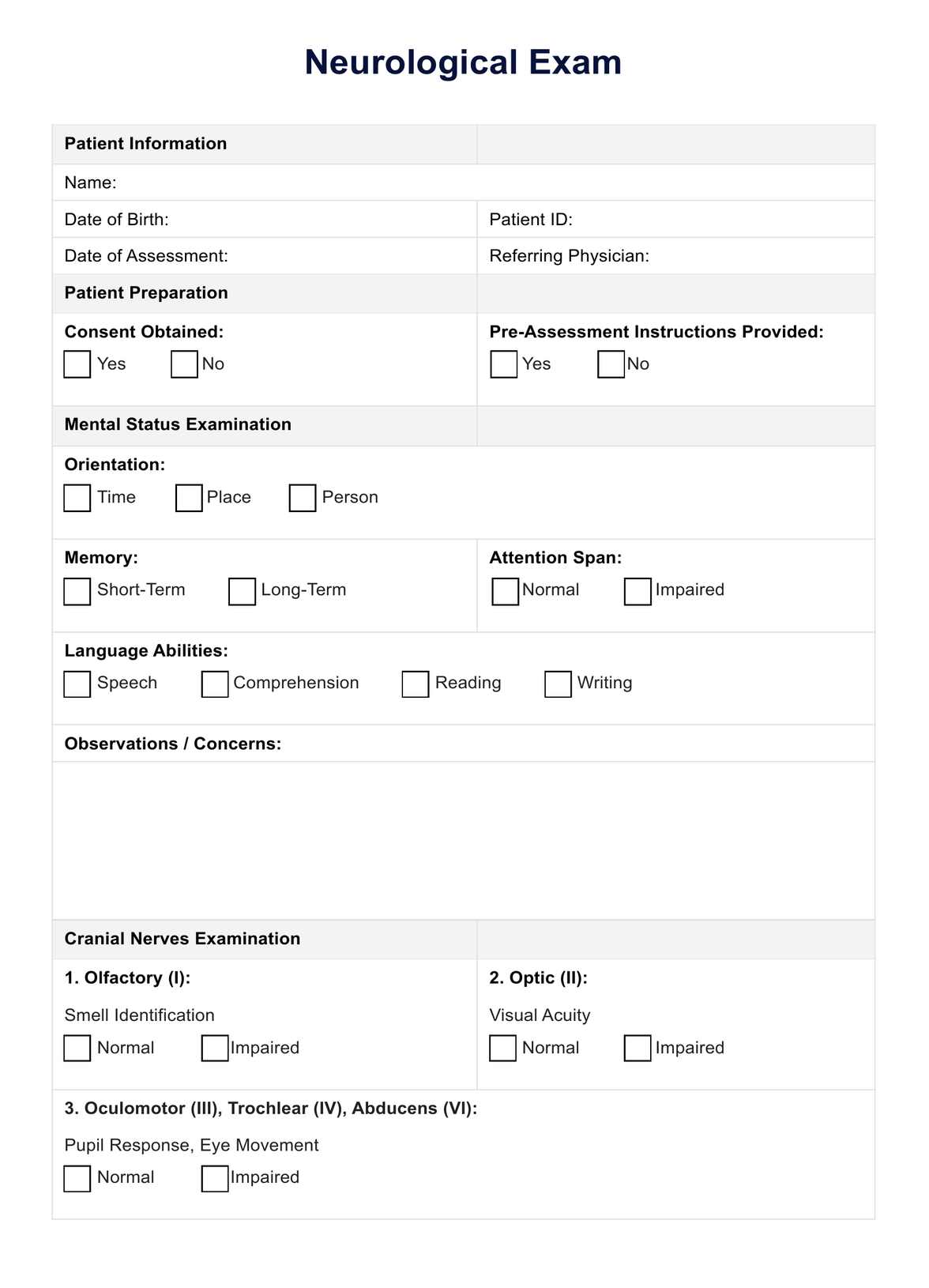The five major components include assessments of the mental status, cranial nerves, motor system, sensory system, and reflexes, along with coordination and gait testing.

Neurological Exam Template
Discover the importance of neurological assessments for diagnosing and monitoring conditions with our comprehensive guide and template. templates
Use Template
Neurological Exam Template Template
Commonly asked questions
Preparation for a neurological exam involves gathering a detailed health history, including any current symptoms, medications, and previous medical or surgical treatments. No special physical preparation is typically needed.
The duration of a normal neurological exam can vary based on the complexity of the symptoms and the thoroughness of the assessment, ranging from 15 minutes to over an hour for more detailed examinations.
EHR and practice management software
Get started for free
*No credit card required
Free
$0/usd
Unlimited clients
Telehealth
1GB of storage
Client portal text
Automated billing and online payments











